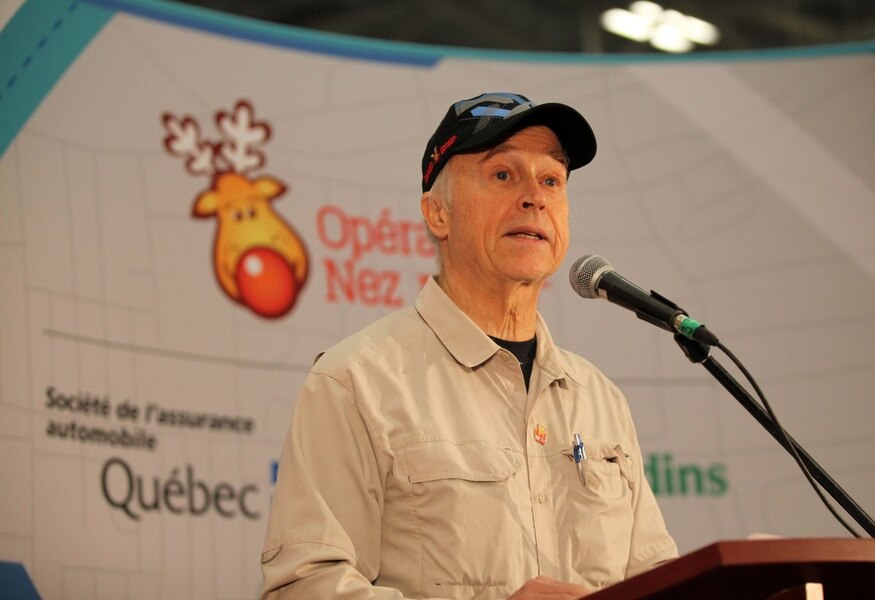Red nose is gearing up for the legalization of pot

Photo By Pascal Huot
The president and founder of Operation red Nose, Jean-Marie De Koninck

Catherine Bouchard
Wednesday, 3 January 2018 10:48
UPDATE
Wednesday, 3 January 2018 17:56
Look at this article
Operation red Nose is already preparing for next year, anticipating a an increase in the requests of the driver with the legalization of cannabis.
The president and founder of Operation red Nose (ORN) Jean-Marie De Koninck wants to be ready to respond to any increased demand for raccompagnements that could lead to the legalisation of cannabis in Quebec and across the country.
“We will try to prepare accordingly, to be more proactive in the recruitment of volunteers,” he argued from the outset Wednesday, at the balance sheet of the 34th edition.
Mr. De Koninck indicates that Red Nose has to go to work this winter to prepare for this next campaign. In addition to the recruitment more intense, the president has not unveiled more details about the strategy of the organization.
“We look at it currently with the key authorities, in particular with public Safety. They are very concerned about this legislation. They began to discuss with us to see what we could do in common, to compensate for this new issue here,” Mr. De Koninck.
ONR hopes to recruit more in continuing to improve the mobile application tool of importance to mobilize volunteers. The organization also hopes to attract more young people into the teams of volunteers.
Increasing average
For this edition, which ends, Red Nose registered an average increase of lift home by evening, despite the cold and the snow.
The number of raccompagnements overall, however, the decline at the national level. There has been a 71 430 people (53 743 in Quebec) put in 2017, compared to 81 000 (60 000 in Québec) in 2016.
“We knew this year that we would certainly have less of raccompagnements, because it had 31 nights, compared to 37 last year. However, we do not expect to see an increase in the pro rata of the number of raccompagnements way,” says Dr. De Koninck, who admits in passing that it is a difficult campaign.
“More difficult because of the cold. The first part, there was a lot of snow, but it has not slowed the raccompagnements, the enthusiasm of the volunteers or the service request. By contrast, in the second part, the cold was present, so the demand was less strong, the enthusiasm of the volunteers less important, and the raccompagnements took more time”, underlines the president.



